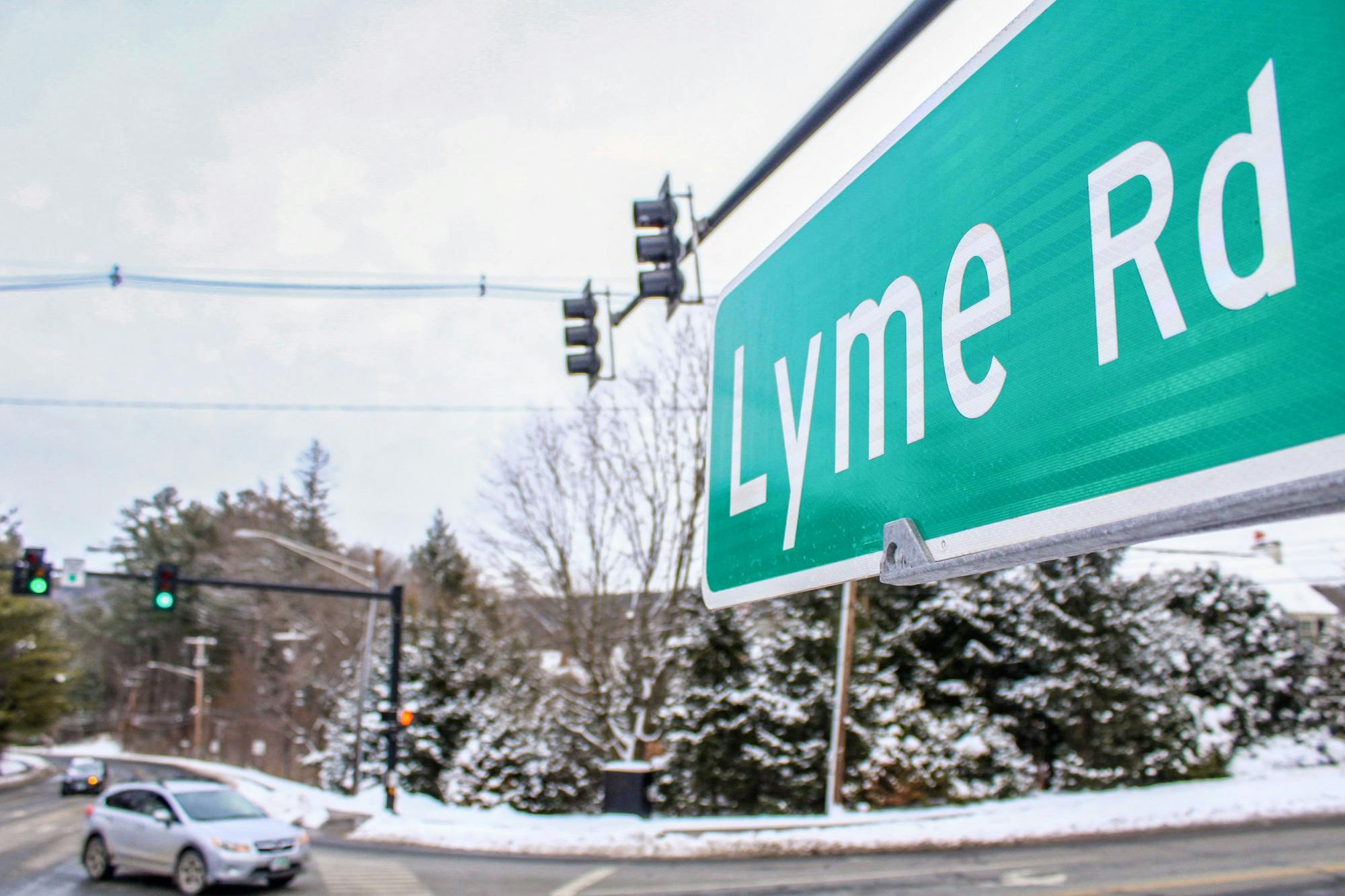The North End housing project on Lyme Road is moving to the Hanover Planning Board,which will conduct a review process prior to the start of construction. The review is conditional on the College providing design solutions to conditions required by the Zoning Board of Adjustment, planning and zoning director Robert Houseman said.
The conditions include “improvements necessary” on the Hanover multi-use path — a shared-use path for both pedestrians and bicycles, according to Houseman. He added that these improvements may “include demarcation of how bicycles pass and integration of lighting” as well as an extension of the path past Dewey Field Lot. He said that the Zoning Board’s Feb. 16 decision to grant a special exception was contingent on the College meeting these conditions.
Zoning Board conditions to be addressed
After the special exception was granted with conditions, it is expected that the College will use “recognized design standards” — including lighting and path width, among others — to respond to the criteria of the Zoning Board, Houseman said.
Studio art and engineering professor Jack Wilson, who attended the Zoning Board meetings, said that the Zoning Board asked the College to look at the potential for “conflicts” between cyclists, pedestrians and cars on the Multi-Use Path.
Parking was another topic discussed during Zoning Board meetings, and the current proposal includes 25 parking spaces, a reduction from 110 in earlier plans. Houseman said the Zoning Board “received recommendations” from the Hanover Bike Walk Committee that reducing parking would “incentivize alternate forms of transportation.” Based on these recommendations, Houseman said that the Zoning Board accepted the College’s proposal on reducing parking after it was proposed in a public hearing.
“If a special exception is approved with conditions, as is customary, any modifications must go through another approval process with the Zoning Board,” Houseman said.
The approval process includes further public hearings, he said. No dates for such hearings have been announced yet.
Only after the Zoning Board of Adjustment accepts the College’s design solutions is the College expected to be allowed to submit plans to the Planning Board, Houseman added.
Planning Board process looms
According to Dartmouth Student Government town affairs liaison Nicolás Macri ’24, the first step in any construction designated as a major project by the Town of Hanover is an informal discussion between the project applicant and the Planning Board. For the Lyme Road project, this meeting took place last summer.
Macri said that because the Lyme Road project is located within the institutional district of Hanover, the project requires a special exception for student residences based on the Town of Hanover’s zoning rules. In such instances where special exceptions are required, the project goes to the Zoning Board of Adjustment, he added.
The project then went through a public hearing process before the Zoning Board granted a special exception with conditions. According to Macri, the Zoning Board’s approval of the special exception means that the town is no longer debating whether to allow construction of a student residence. Instead, Hanover officials are considering what such a residence should look like, Macri said.
Once the College’s proposed modifications are approved by the Zoning Board, it will face hurdles in the Planning Board process, according to Wilson.
‘At a crossroads’
The project has been contentious, attracting both support and opposition from students, faculty, staff and community members.
DSG president David Millman ’23 said that the Student Government has been “collaborating with College officials” on the project since last summer.
“Our position around this has been about what is best for students,” Millman said, adding that one aspect of DSG’s decision to support the project was a student survey sent out last term. Millman said that the survey contained a range of questions — including one about the North End project — and received 1,104 responses.
DSG found that 21.83% of respondents said “they would choose to live in the North End Housing Project once built,” according to the survey. When extrapolated to the student body, this demand would be over double the planned capacity of 397 beds in the housing project.
DSG deputy town affairs liaison Daniel Cai ’26 said that he began investigating the North End Housing project last summer and that he is now focused on doing what he can to “make the project a viable living space for future students.” After being appointed to his current position in January, Cai said that he worked with Macri to develop a report about the project, which was submitted to the Zoning Board on Jan. 26.
DSG voted to make the report their official position on Jan. 25, which “strongly recommends” that the Zoning Board of Adjustment grant the special exception, Millman said. The report said that the project would be necessary in order for the College to allow for the renovation of existing student residences and increase housing supply. The report also said that the project “fits within” the character of the neighborhood.
“This will unlock opportunities for on-campus housing,” Macri said. “The lack of housing impacts everybody, not just students.”
Opposition to the project has come from students, faculty, and Hanover residents. On Dec. 12, the Garipay Neighborhood Association Working Group submitted a petition to the Zoning Board of Adjustment. The petition said the project would create “increased traffic problems,” “increased pedestrian hazards,” “infrastructure strain,” “environmental harm” and “light pollution,” and was signed by 374 people, including 353 who said they used Lyme Road or had children attending schools in Hanover.
Hanover resident Barry Harwick ’77 said he was involved with a group of “about four or five” who created and circulated the petition and said the project was “incredibly misguided.”
“It is a very bad idea to put 400 undergraduates a mile away from campus,” Harwick said.




